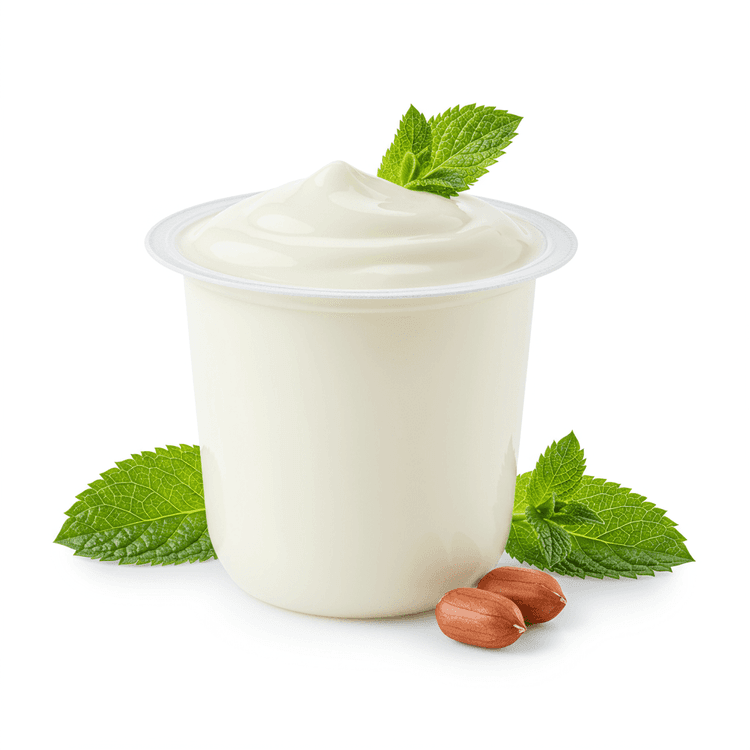
Yogurt
Yogurt is a creamy, tangy dairy product made by fermenting milk with live bacterial cultures. It boasts a smooth, thick texture and a slightly acidic flavor that can range from subtly sweet to tart, depending on the type. Commonly white or off-white in color, yogurt is a versatile ingredient prized for its health benefits and culinary applications. Find the best yogurt for baking, cooking, or enjoying on its own.
Common Uses
- As a breakfast staple: Enjoy yogurt plain or topped with fruit, granola, honey, or nuts for a nutritious and satisfying breakfast. Perfect as a quick and healthy meal option.
- In smoothies and shakes: Blend yogurt into smoothies and shakes to add creaminess, thickness, and a boost of protein and probiotics. A great way to enhance your drinks with a healthy touch.
- As a marinade for meat: Yogurt tenderizes meat and adds flavor when used as a marinade. Its mild acidity helps break down proteins, resulting in more tender and flavorful dishes. Especially good for chicken and lamb.
- In dips and sauces: Use yogurt as a base for dips and sauces, such as tzatziki or raita. It provides a tangy and cooling element, making it a versatile ingredient for adding brightness to various dishes.
- In baking: Substitute yogurt for sour cream or buttermilk in baking recipes to add moisture and a slightly tangy flavor. It helps create cakes, muffins, and breads with a tender crumb and added health benefits.
- As a topping: Drizzle yogurt over tacos, soups, or baked potatoes as a healthy and flavorful topping. It provides a creamy texture and tangy taste that complements a variety of dishes, offering a lighter alternative to sour cream.
Nutrition (per serving)
Nutrition (per serving)
Calories
61.0kcal (3.05%)
Protein
3.5g (7%)
Carbs
4.7g (1.71%)
Sugars
4.7g (9.4%)
Healthy Fat
1.0g
Unhealthy Fat
2.2g
% Daily Value based on a 2000 calorie diet
Nutrition (per serving)
Calories
61.0kcal (3.05%)
Protein
3.5g (7%)
Carbs
4.7g (1.71%)
Sugars
4.7g (9.4%)
Healthy Fat
1.0g
Unhealthy Fat
2.2g
% Daily Value based on a 2000 calorie diet
Health Benefits
- Supports gut health with probiotics, aiding digestion and reducing bloating.
- Excellent source of calcium for strong bones and teeth, helping prevent osteoporosis.
- High in protein, promoting muscle growth, repair, and feelings of fullness for weight management.
- Rich in essential nutrients like vitamin B12 and potassium, contributing to overall well-being.
- May boost the immune system due to its probiotic content, helping fight off infections.
- Can improve heart health by helping to lower blood pressure and cholesterol levels.
Substitutes
Chefadora AI is here.
Experience smarter, stress-free cooking.
Storage Tips
Yogurt should always be stored in the refrigerator at a temperature between 33°F and 40°F (0.5°C and 4.4°C). Ensure the container is tightly sealed after each use to prevent contamination and maintain freshness. Properly stored yogurt can typically last for 1-2 weeks after the sell-by date, though it's best to rely on sensory cues; discard if there are signs of mold, unusual odors, or a significantly altered texture.
Marnirni-apinthi Building, Lot Fourteen,
North Terrace, Adelaide, South Australia, 5000
Australia

